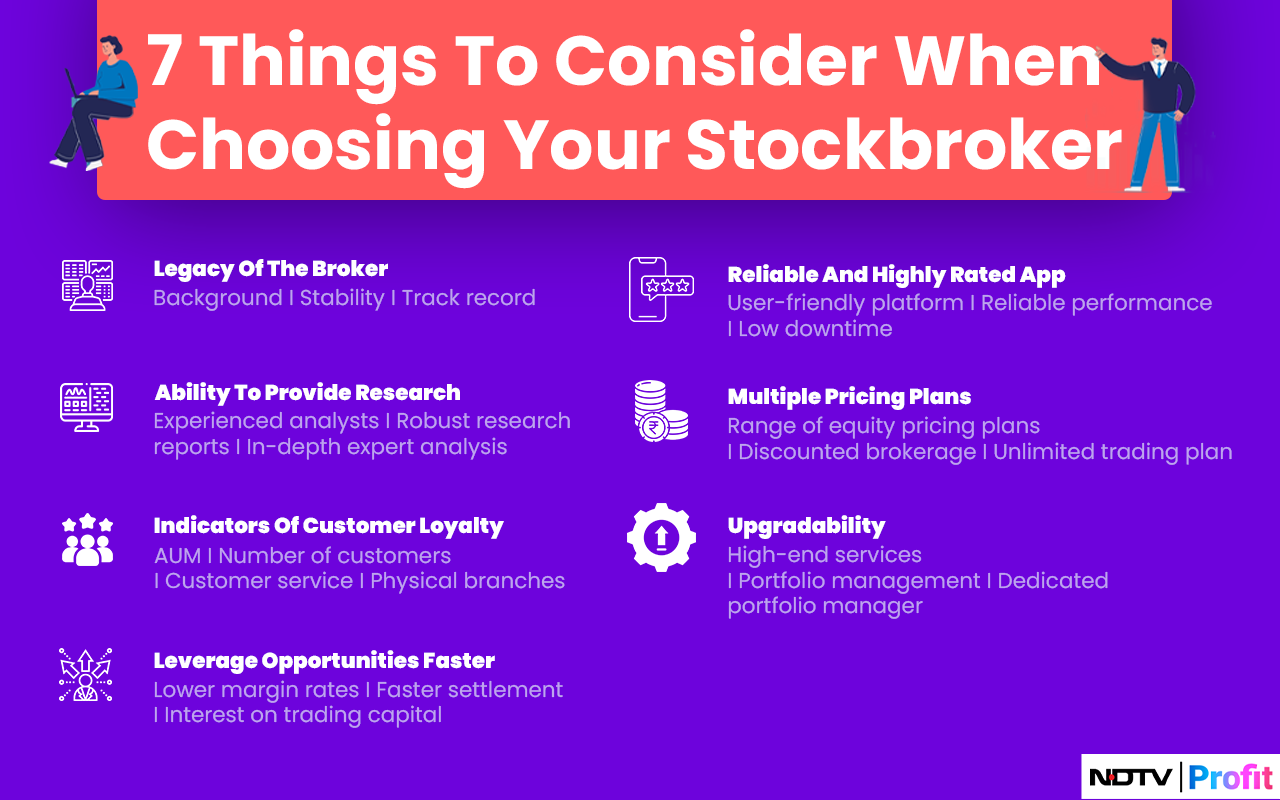
*This is in paid partnership with ICICI Direct
We all have that one aspiration—whether it's going on that second international vacay this year, buying that sports bike, building that sneaker collection or maybe even upgrading your smartphone to the latest model—while road tripping abroad on your new sports bike and new kicks. But usually, EMIs and expenses play spoilsport to this aspiration, and it remains a dream. Unless, of course, you've mapped your dream out and are actively investing.
So, how do you go about investing? When you're starting off, the thought of the stock market can seem—well—quite daunting, to say the least!
With all the hype around investing, don't be surprised if you're feeling overwhelmed even before your first trade. But this can be easily fixed! The first thing you need is a confidante you can trust to navigate the world of capital markets.
Enter the stockbroker!
A stockbroker serves as an intermediary between you and the complex world of financial markets. They're your advisors providing insights and recommendations based on your risk tolerance, after helping you set your financial goals. They steer you through various investments, offering personalised advice every step of the way to help grow your wealth.
A stockbroker can make or break your investing decision, so therein lies the next question: How do you choose the right stockbroker?
Start with researching things like broker's history, charges, reliability of the trading platform, customer service and settlement time.

Things to consider when choosing your stockbroker.
1. Vintage/Legacy
Examine the broker's legacy, stability, track record and how long they've been in business. Long-standing brokers would have proven their reliability and commitment over time and boast a greater number of individual investors. This higher number serves as a testament of investors' trust in them. Speaking to fellow investors or experts about the broker's background is also a good idea.
2. Ability To Provide Research
For newbie investors, researching the right investments and taking a critical financial decision can be a steep hill to climb. Choosing a broker that provides access to experienced analysts, robust research reports, educational resources and fund managers can make market participation easier. Traditional brokers only charge brokerage and nothing more for their research. An experienced research team can provide valuable insights and profitable recommendations, potentially improving your investment outcomes.
3. Indicators Of Customer Loyalty
Higher assets under management and number of customers/active accounts, dedicated customer service through a warm body and not just a digital bot, and availability of physical branches are indicators of customer loyalty. Higher AUM suggests that the broker is established and has resources to make larger investments. For new investors, access to a warm body is more important than purely digital support, so as to resolve queries faster and get personal/face-to-face guidance.
4. Leverage Opportunities Faster
Some brokers offer lower cost of margin trading—wherein you borrow funds from broker for purchasing an investment—helping you save interest payable on margin. Also, a broker providing faster settlement time and partial settlement helps improve liquidity and allows you to access your funds and securities faster. Some brokers also offer interest on the unutilised amount in your trading account.
5. Reliable And Highly Rated App/Web Interface
Time is of essence in trading, so a fast, reliable platform with low downtime ensures you can track market/investments and trade whenever you need to. For on-the-go trading, a highly rated mobile app is a must. A user-friendly interface with intuitive layouts, real-time data feeds, customisable dashboards and interactive charts on a single screen further make investing a breeze.
6. Multiple Pricing Plans
A broker offering a wide range of pricing plans—based on your trading frequency and investment size—can help you avail various brokerage benefits. Per-trade flat rate pricing plan is usually low cost, requiring you to pay only when you make a trade. For a fixed monthly/yearly/lifetime plan, you may get discounted brokerage charges, while a tiered brokerage structure is suitable for large trading volumes.
7. Upgradability
As your portfolio expands, you might want to consider upgrading to high-end offerings like portfolio management services. With PMS, you get a dedicated portfolio manager who can suggest investments or take full responsibility for your portfolio. The PMS approach allows for better diversification, real-time performance tracking and access to exclusive investment funds with high minimum contributions.
Investing is a long-term journey, and it's smartest to do it with a broking partner who will be there for you at each stage of your journey towards achieving financial freedom. By weighing the above seven aspects, you will be better equipped to find a broker that aligns with your investment goals and style.
Essential Business Intelligence, Continuous LIVE TV, Sharp Market Insights, Practical Personal Finance Advice and Latest Stories — On NDTV Profit.























